Brief Encounter (1945)
“Nothing lasts, really — neither happiness nor despair. Not even life lasts very long.”
|
Synopsis: |
|
Genres:
Response to Peary’s Review: … is a “nicely acted film” representing the “visualization of a fantasy of many sexually repressed women” given that “Johnson is married to a bore (Cyril Raymond) who takes her for granted; surely they have no sex life.” He adds that the fact “Howard is a doctor is… significant. I would have thought he’d be a heart specialist who ‘revives’ Johnson’s long-lost emotions. But he’s a lung doctor, indication that Johnson’s home life is stifling.” Peary ends his brief review by noting that “If [the] ending is frustrating for viewers, it is equally frustrating for the two would-be lovers — if they’d been French rather than British, it all would have worked out fine.” Peary’s review of this fourth collaboration between director David Lean and producer-playwright Noel Coward — after In Which We Serve (1942), This Happy Breed (1944), and Blithe Spirit (1945) — is perhaps overly succinct and pat; DVD Savant adds some more thoughts to the analysis:
Indeed, Brief Encounter is a bittersweet film, and is not one I particularly enjoy watching, though I certainly appreciate its honesty and fine craftsmanship. Rachmaninoff’s piano concerto number 2 (purportedly Coward’s favorite musical piece) is used to memorable effect, the cinematography is consistently atmospheric, and all sets — from the crowded train station cafe: to shadowy tunnels — suit the characters’ secretive situation perfectly. The storyline itself — expanded from Coward’s original half-hour play Still Life (1936) — is expertly structured, framing the entire “brief encounter” as a self-reflective moment in the life of a woman who knows she will ultimately stay faithful to her husband and boring life, but recognizes what a gap this affair has filled (or opened up?) for her. One hopes she may be able to bring her newfound passion back to her marriage and convince her husband she wants more than simply kindness and expectations for dinner served on time; the final image of her embrace with Raymond is, to that end, perhaps an encouraging one. Redeeming Qualities and Moments:
Must See? Categories (Listed in 1001 Movies You Must See Before You Die) Links: |
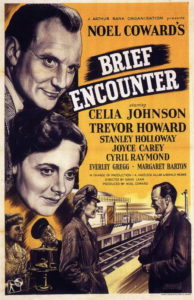
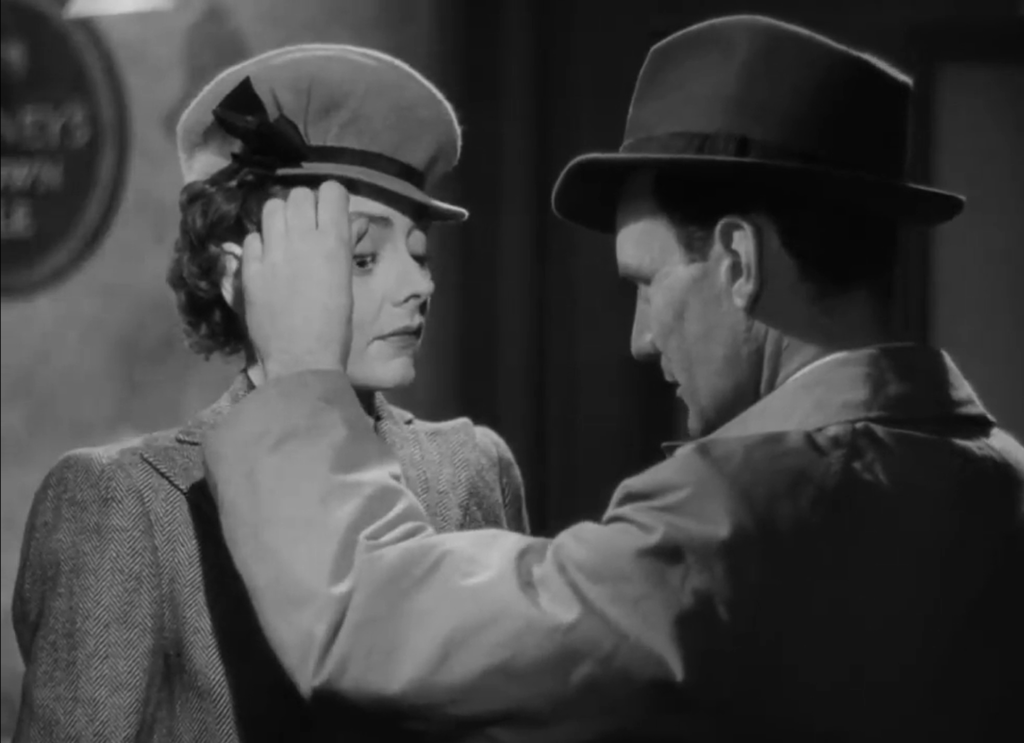
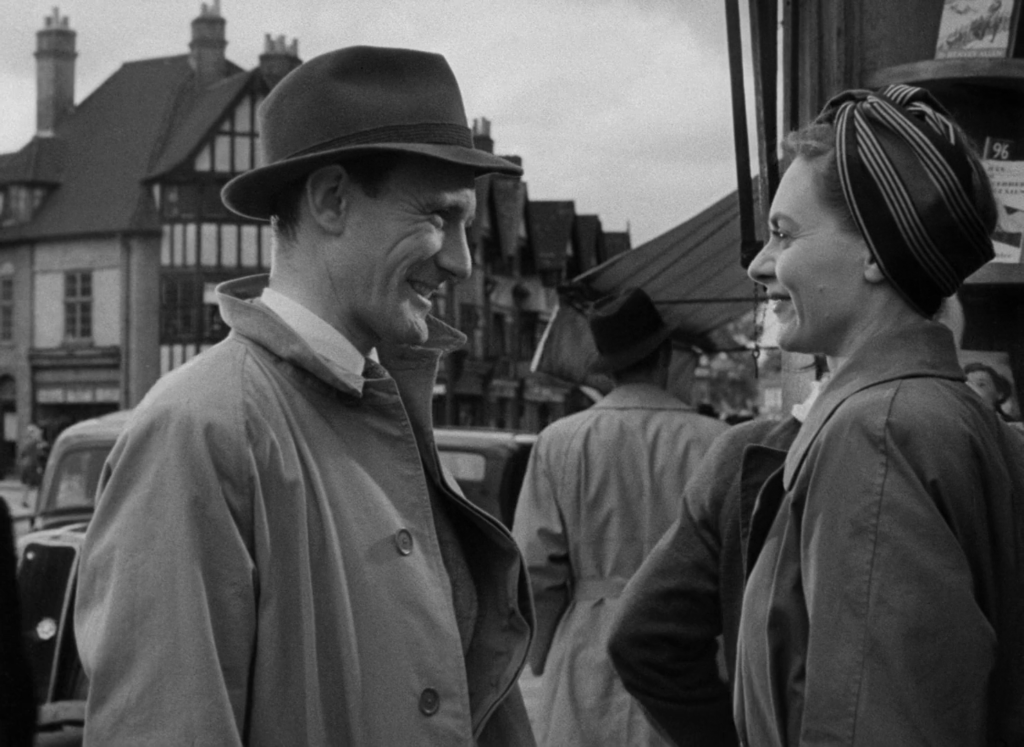
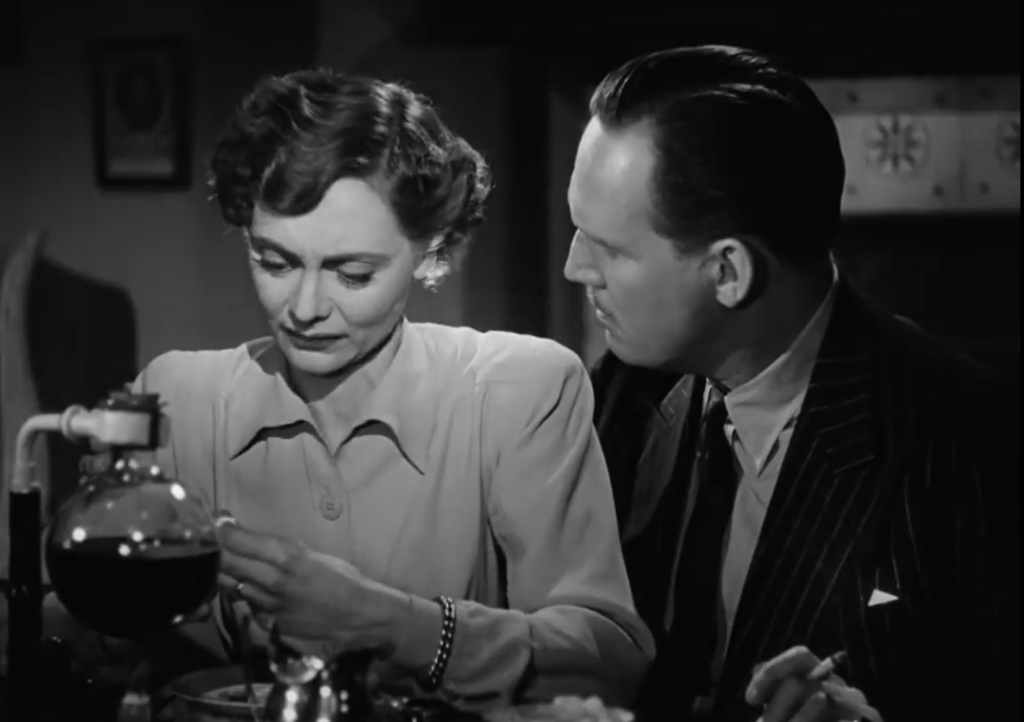
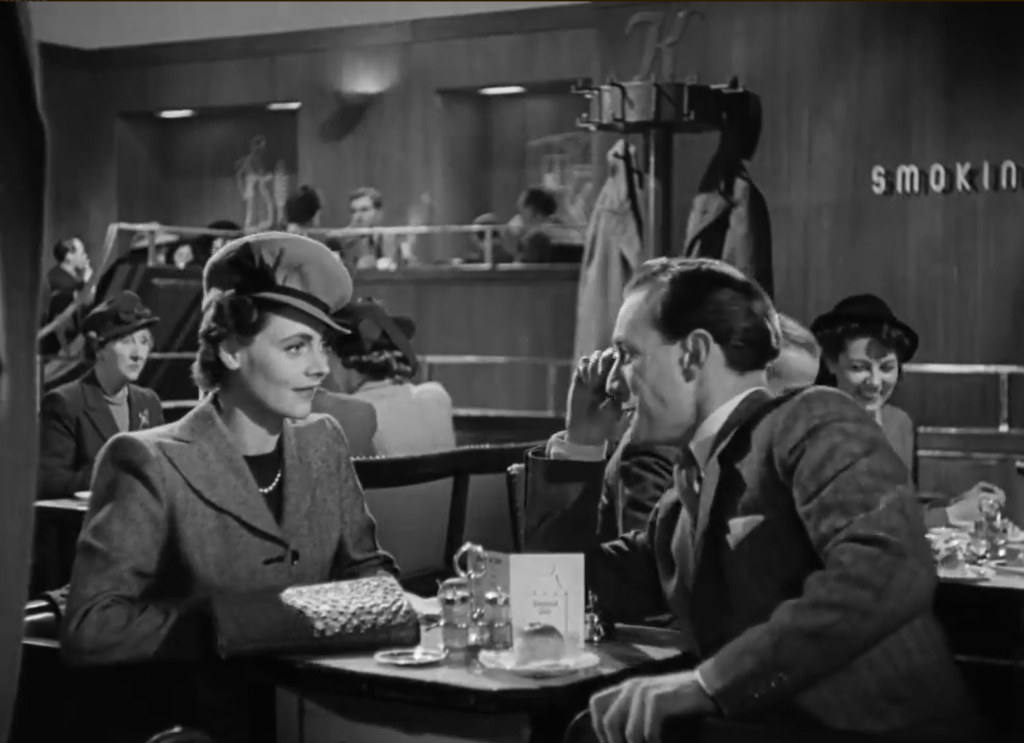
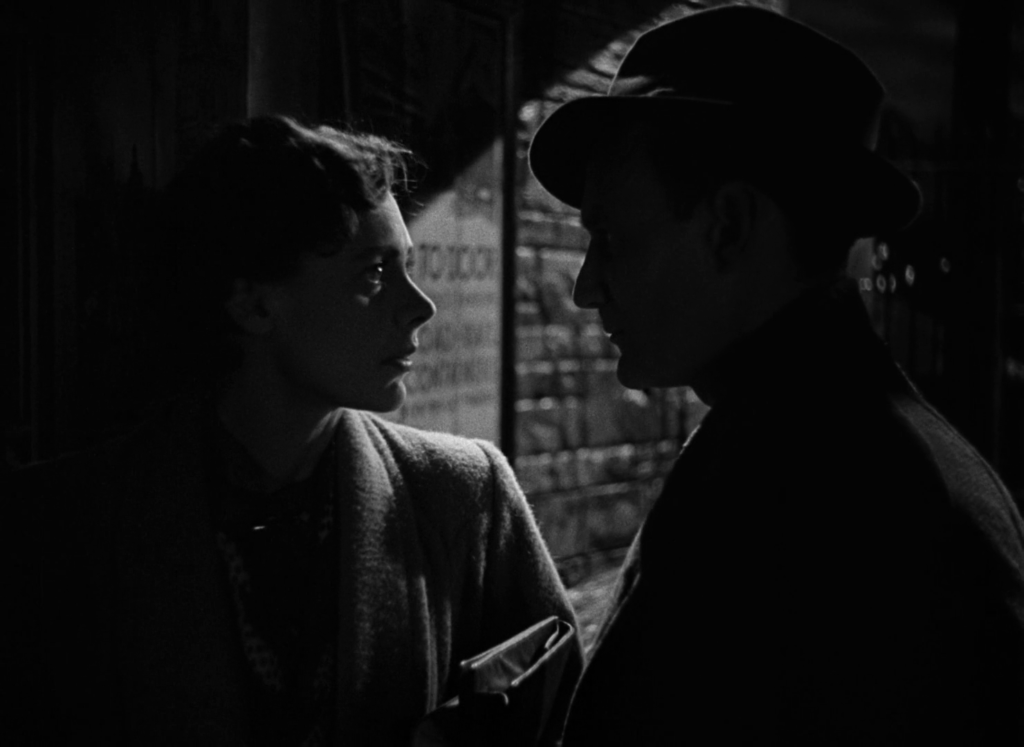
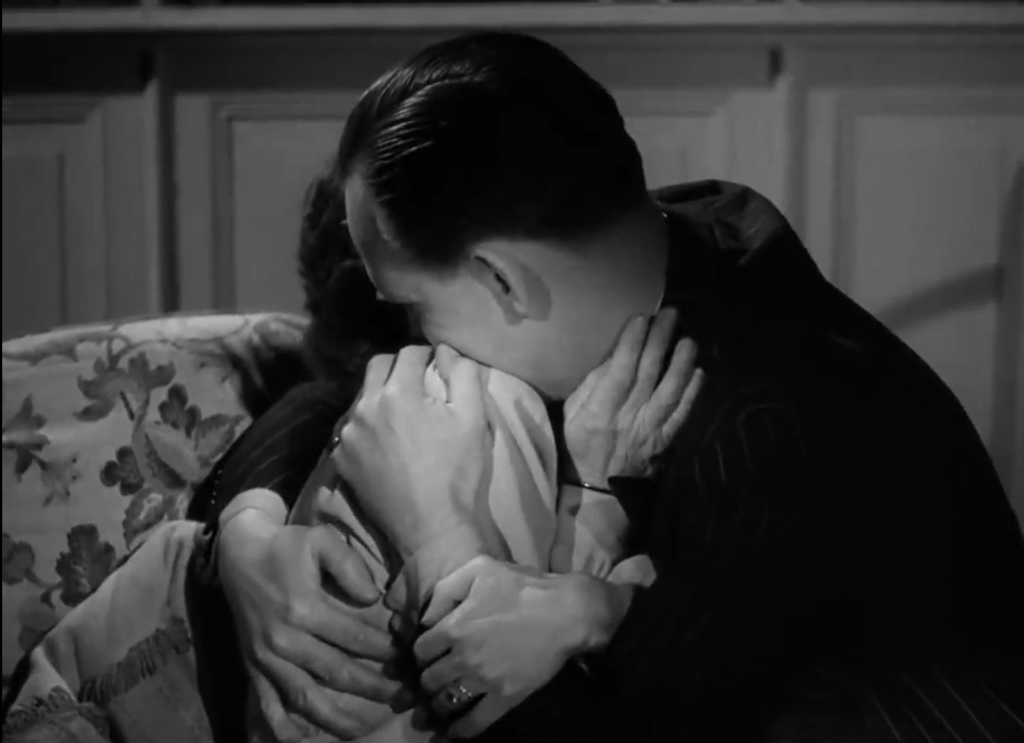
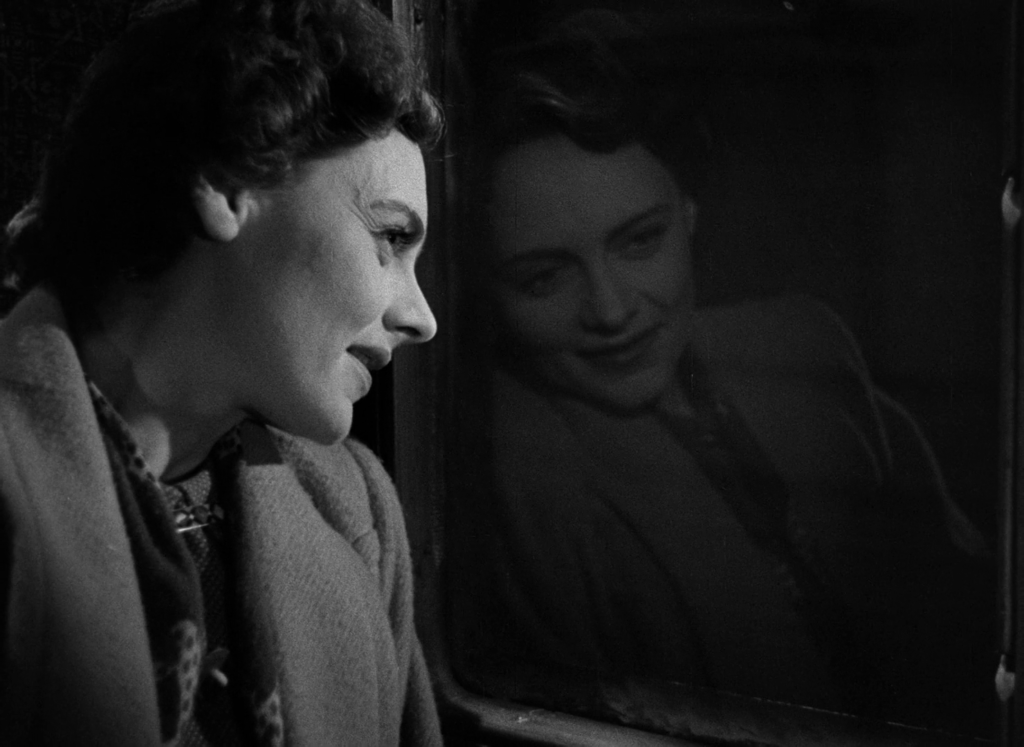
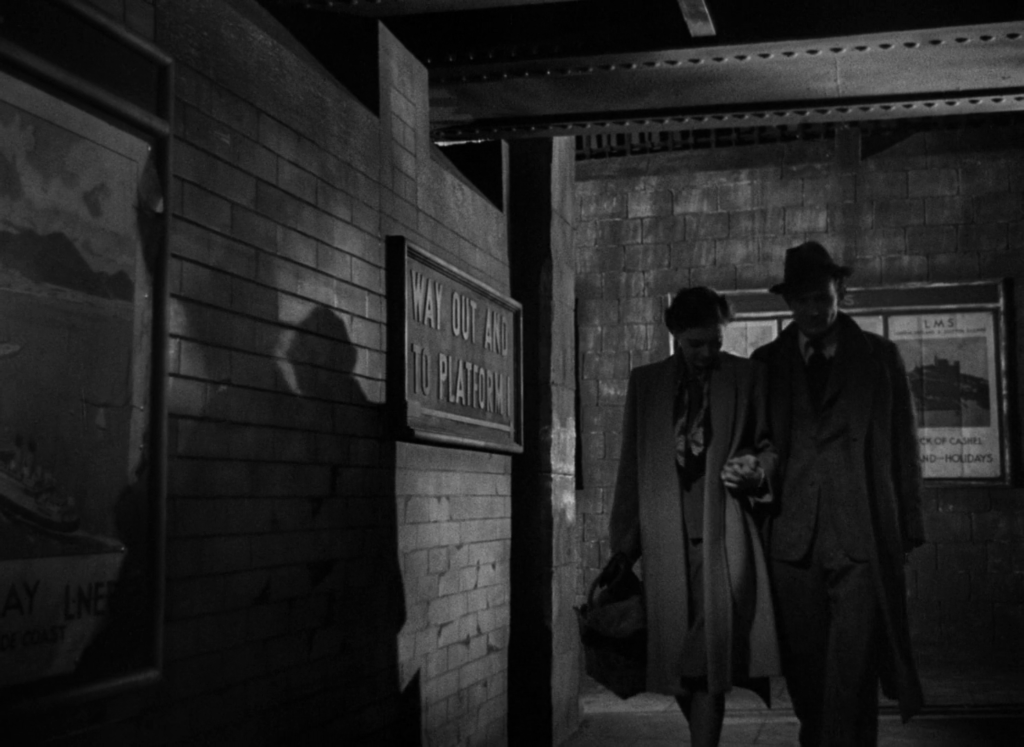
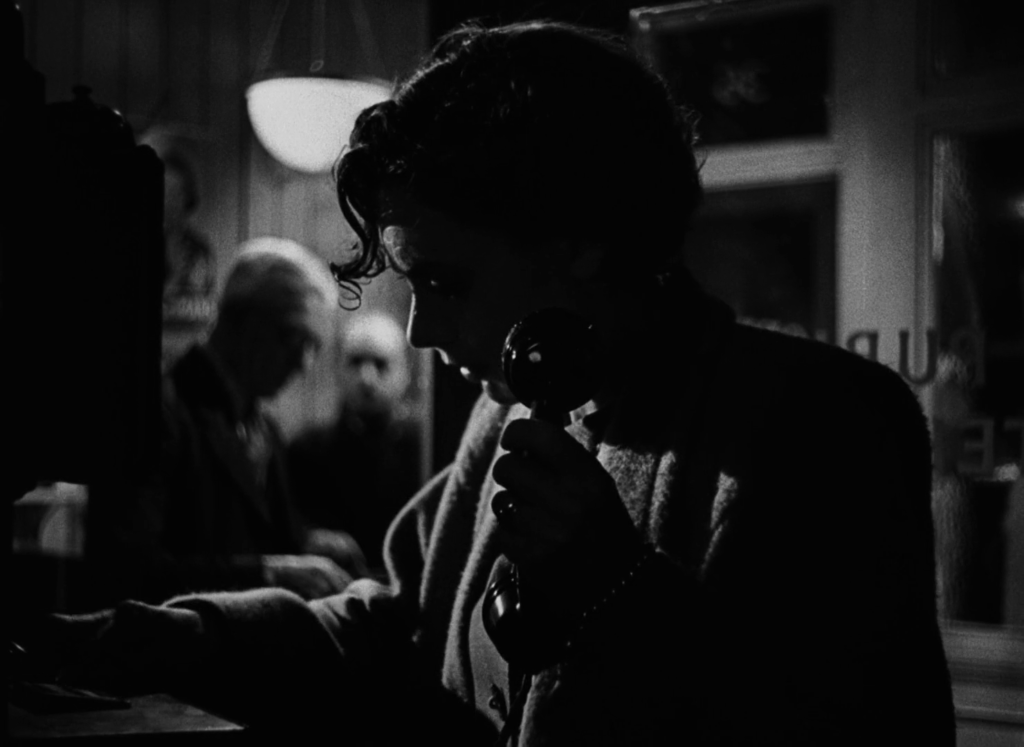
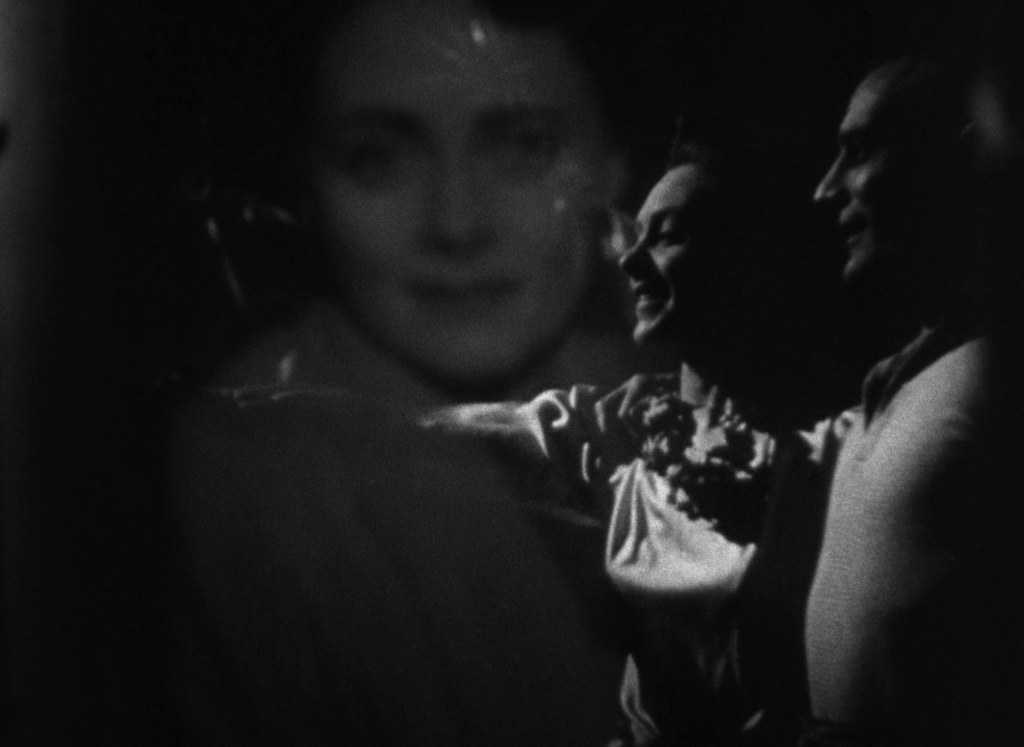
2 thoughts on “Brief Encounter (1945)”
Agreed: must-see (and, for those particularly taken with it, it seems to only reveal more layers with added viewings) – for its very solid place in cinema history, the WRITING, the performances, and Lean’s direction. As per my post in ‘The ’40s-’50s in Film’ (fb):
[“As it is, you’re the only one in the world that I can never tell. Never never. Because even if I waited until we were old, old people and told you then, you’d be bound to look back over the years and be hurt.”
My favorite David Lean film and my favorite Noel Coward script, featuring my favorite fictional couple that never has sex. 😉 But, seriously… what I like most about the characters played by Celia Johnson and Trevor Howard is that they are such genuinely nice, humble, considerate people. ~to the point where you might almost be ^begging* for them to (PLEASE!) have sex – as a reward for being so friggin’ NICE! As for Coward, I might need to rewatch a fair amount of his work to remind myself – but it seems to me he has rarely been as insightful about the particular kind of human ‘frailty’ that is on display in this film. That said, the film is also a sad reminder of how little (in a relationship) can be said or known about the nature and purpose of desire.]
I should also add here that, throughout my multiple viewings of this film, I have never once found it to be depressing. Not that it’s uplifting (certainly) but I’m more focused on its richness, I suppose. There’s so much to get ‘lost in’ here.
I also don’t feel that the woman’s home-life is all that “stifling” or that her husband is “boring”. However. the sense is strongly apparent that the woman feels she has been taken for granted at home: she gives much more than is given. It seems evident that she genuinely loves her children and husband – but the children are too young to be little more than demanding of her time and her husband seems to have settled into ‘quiet domesticity’. He’s not particularly demonstrative (in that typically male – and British – way).
It seems primary to note that, in the ‘brief encounter’, the woman is appreciative of the fact that someone is PAYING ATTENTION to her for a change and that her existence as a real person is being recognized. That can be very easy to fall in love with.
A classic of UK cinema and one that is still revived, discussed and remembered so definitely a must see.